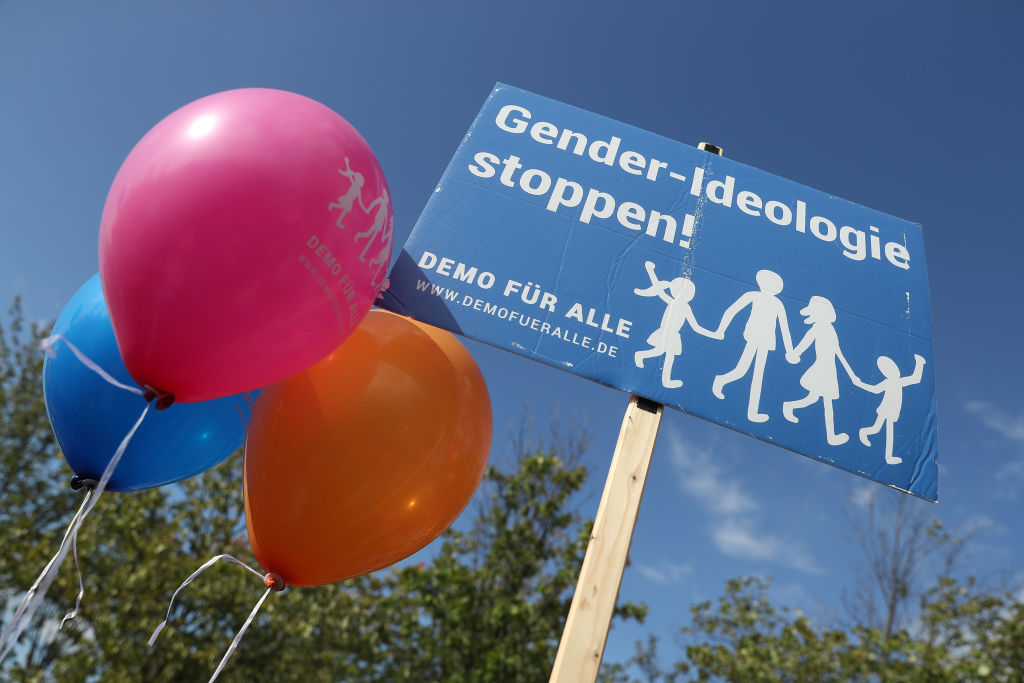Pronoun politics can be something of a minefield. But if you think the gender debate is confusing, spare a thought for our German cousins. The quirks of the language make it hard to avoid causing offense, even for those determined to tread carefully.
German, as with French and Spanish, has different noun endings for masculine and feminine words. For example, eine Ärztin specifically refers to a female doctor and ein Arzt to a male doctor. The masculine form is used most frequently and as a sort of gender catch-all. And it’s here that the issue arises.
The language has, to be fair, adapted to cater for modern sensitivities. In modern German, the title Fräulein (Miss) is no longer widely used, following criticism from feminists in the second half of the 20th century. Fräulein was determined to be belittling to women, as it is a diminutive form of the noun Frau (woman). With respect to Louisa May Alcott, no one wants to describe themselves as a ‘little woman’ on a form. As a result, modern German offers only Herr and Frau. It’s not hard to see why this might be seen by some as problematic.
Unfortunately for its speakers, Germany’s linguistic struggles with gender do not stop there. Recent attempts to make these gender-specific forms more inclusive have resulted in a variety of new, and ever-more imaginative, uses of capital letters and punctuation within the nouns themselves; so Bürger, meaning male citizens, has many new forms including die BürgerInnen, die Bürger_innen, die Bürger/innen or die Bürger*innen.
In true German fashion, a new compound noun was spawned to refer to the asterisk doing so much heavy lifting in the last version — the Gendersternchen or ‘little gender star’. Unsurprisingly, there has been some backlash to the introduction of these Wingdings-esque creations.
When I arrived to study at university in Germany, I soon encountered another technique for dodging the grammatical pitchforks; in an email, we were lovingly addressed as Liebe Studierende (Dear those studying). The neat sidestepping of ‘student’ — and the whole question of gender that comes with it — was unlikely to have been accidental.
But not all Germans are on board with attempts to update the language. Last fall, the German-speaking population was passionately implored to ‘Save the German language from the Duden’ (the German equivalent of the Oxford English Dictionary) in a petition from the Verein Deutsche Sprache (the Association for German Language; Germany’s answer to L’Académie Française). The Association was put out because the Duden had begun to update their online entries to include the feminine forms of certain nouns and specify the gender of the masculine forms. Nearly 40,000 people have so far backed the petition.
Is there a third way between avoiding offense without upsetting conservatives? German’s ministry for justice tried a different approach in the drafting of a legal bill from the office of an SPD Ministerin (female government minister) in which the feminine forms of nouns were used almost exclusively. There is a grammatical argument that the terms for legal bodies in German are often feminine (such as GmbH, the German form of Ltd) and so the feminine forms were appropriate. Nonetheless, not everyone was pleased: the draft was criticized and derided by both the AfD and the CDU parties.
Of course, it isn’t only Germany which is battling with this linguistic minefield. While the gender-neutral, singular pronoun hen was introduced to the official Swedish dictionary in 2015, not all efforts have been as successful. Recent attempts to fashion more gender-neutral forms in French resulted in the tabling of a bill earlier this year aiming to ban the use of gender-neutral terms among government officials.
Despite the ever-entertaining controversy of freshly minted gender-neutral forms, perhaps German faces a more pressing problem. The rise in the number of German universities in which some or all degree courses are taught mostly or exclusively in English raises the question of whether the addition of the Gendersternchen isn’t in fact the least of the language’s troubles.
This article was originally published on The Spectator’s UK website.

























